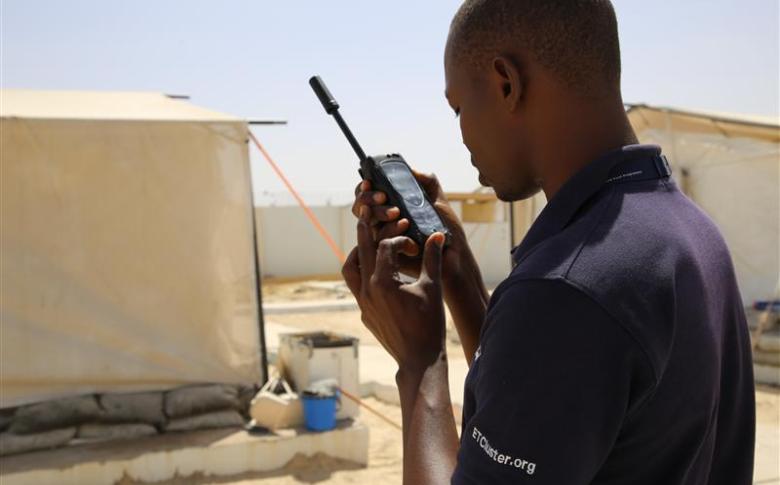Nigeria: Radio Skills for Safer Aid Assistance

In conflict-affected areas of Nigeria, communication can mean the difference between safety and danger. For humanitarian responders operating in some of the country’s most challenging environments, staying connected is not just a matter of efficiency—it’s a matter of survival.
When more conventional communication channels are unavailable or unreliable, handheld radios become a vital tool. They provide a secure, immediate way for responders to coordinate their actions, stay informed, and reach help if needed. For teams on the front lines, radios are more than just equipment—they are a lifeline.
To strengthen this critical capability, the Emergency Telecommunications Sector (ETS) in Nigeria has been delivering targeted radio training to humanitarian partners and local government officials. The training equips participants with practical skills to operate radios effectively, use communication protocols, and ensure safety while delivering life-saving aid.
Participants have shared how this training is already making a real difference in their daily work. With a better understanding of radio use and clearer communication among field teams, responders are able to navigate complex environments with greater confidence and security.
This essential training is made possible thanks to the support of the EU Civil Protection and Humanitarian Aid. Their funding enables ETS Nigeria to continue building the capacity of humanitarian actors in the field, ultimately helping to ensure that aid reaches those who need it most—safely and efficiently.
To hear directly from those trained, watch the video below and learn how radio communication is helping them stay connected in crisis.